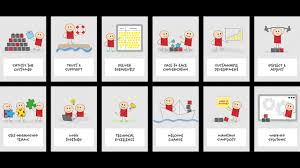Effective studying is essential for academic success and personal growth. However, managing time efficiently can be challenging for many students, especially with the myriad of distractions and responsibilities they face. Mastering time management not only enhances your study habits but also improves productivity and reduces stress. This comprehensive guide provides practical time management tips for effective studying, helping you maximize your study sessions and achieve your academic goals.
1. Create a Study Schedule

Set Clear Goals
Before diving into your study sessions, establish clear academic goals. Define what you aim to achieve in each subject or topic and set specific, measurable objectives. This will help you stay focused and motivated.
- Example: Instead of a vague goal like “study math,” set a specific goal such as “complete Chapter 5 exercises and review key concepts.”
Design a Study Timetable
Craft a study timetable that outlines when and what you will study each day. Allocate specific time blocks for each subject, and include breaks to prevent burnout. A well-structured timetable provides clarity and helps you manage your time effectively.
- Tip: Use tools like Google Calendar or a physical planner to create and track your study schedule.
2. Prioritize Tasks
Use the Eisenhower Matrix
The Eisenhower Matrix is a powerful tool for prioritizing tasks based on their urgency and importance. Divide tasks into four categories:
- Urgent and Important: Tasks that need immediate attention.
- Important but Not Urgent: Tasks that are essential but not time-sensitive.
- Urgent but Not Important: Tasks that require immediate action but are not crucial.
- Not Urgent and Not Important: Tasks that can be postponed or eliminated.
Focus on completing tasks in the “Urgent and Important” category first to ensure that you address critical issues promptly.
Apply the Pareto Principle
The Pareto Principle, or the 80/20 rule, suggests that 80% of results come from 20% of efforts. Identify the most impactful study activities that contribute to your success and prioritize them.
- Example: If practice exams are more effective than reading textbooks for preparing for a test, focus more on practice exams.
3. Employ the Pomodoro Technique
What is the Pomodoro Technique?
The Pomodoro Technique is a time management method that involves working in short, focused intervals (typically 25 minutes) followed by a short break (5 minutes). After four intervals, take a longer break (15-30 minutes). This approach helps maintain concentration and prevent fatigue.
How to Use It Effectively
- Choose a Task: Select a specific study task or topic.
- Set a Timer: Set a timer for 25 minutes and start working.
- Take a Short Break: After 25 minutes, take a 5-minute break.
- Repeat: Continue the cycle and take longer breaks after four cycles.
- Tip: Use apps like Pomodone or Focus Booster to implement the Pomodoro Technique.
4. Minimize Distractions

Create a Conducive Study Environment
Designate a quiet, organized study space free from distractions. Ensure your study area is well-lit and equipped with all necessary materials.
Manage Digital Distractions
Digital devices can be significant distractions. Turn off notifications, use website blockers, or enable “Do Not Disturb” mode on your devices while studying.
- Tip: Apps like Freedom or Cold Turkey can help you block distracting websites and apps during study sessions.
5. Incorporate Active Study Techniques
Active Learning Strategies
Active learning involves engaging with the material in a way that promotes deeper understanding. Techniques include:
- Summarizing: Write summaries of key concepts in your own words.
- Self-Testing: Test yourself regularly on the material you’ve studied.
- Teaching: Explain concepts to someone else or imagine teaching them.
Use Study Tools
Leverage study tools and resources such as flashcards, mind maps, and educational apps. Tools like Anki for spaced repetition and Quizlet for flashcards can enhance your study sessions.
6. Set Realistic Study Goals
Break Down Large Tasks
Large tasks can be overwhelming. Break them down into smaller, manageable segments. This approach makes it easier to tackle complex topics and prevents procrastination.
- Example: Instead of studying an entire textbook chapter in one go, break it into sections and study each section separately.
Set Time Limits
Assign specific time limits to each study session or task. Time constraints help you stay focused and avoid spending excessive time on a single topic.
- Tip: Use a timer to track how long you spend on each task and adjust your study plan accordingly.
7. Practice Self-Care
Ensure Adequate Sleep
Sleep is crucial for cognitive function and memory consolidation. Aim for 7-9 hours of quality sleep each night to enhance your study effectiveness.
Maintain a Balanced Diet and Exercise
A healthy diet and regular exercise contribute to overall well-being and cognitive performance. Incorporate physical activity into your routine to boost energy levels and reduce stress.
- Tip: Follow the 20-20-20 rule: Every 20 minutes, take a 20-second break and look at something 20 feet away to reduce eye strain.
8. Reflect and Adjust

Review Your Progress
Regularly review your progress and assess the effectiveness of your study strategies. Identify areas where you can improve and adjust your study plan accordingly.
Seek Feedback
Seek feedback from teachers, peers, or mentors to gain insights into your study habits and performance. Constructive feedback can help you refine your approach and achieve better results.
- Tip: Schedule periodic check-ins with yourself or a study partner to evaluate your progress and make necessary adjustments.
Conclusion
Effective time management is crucial for successful studying and academic achievement. By creating a study schedule, prioritizing tasks, using techniques like the Pomodoro Method, minimizing distractions, incorporating active learning, setting realistic goals, practicing self-care, and regularly reflecting on your progress, you can optimize your study sessions and enhance your learning outcomes. Implement these time management tips to boost your productivity, reduce stress, and achieve your academic goals with greater efficiency. Happy studying


